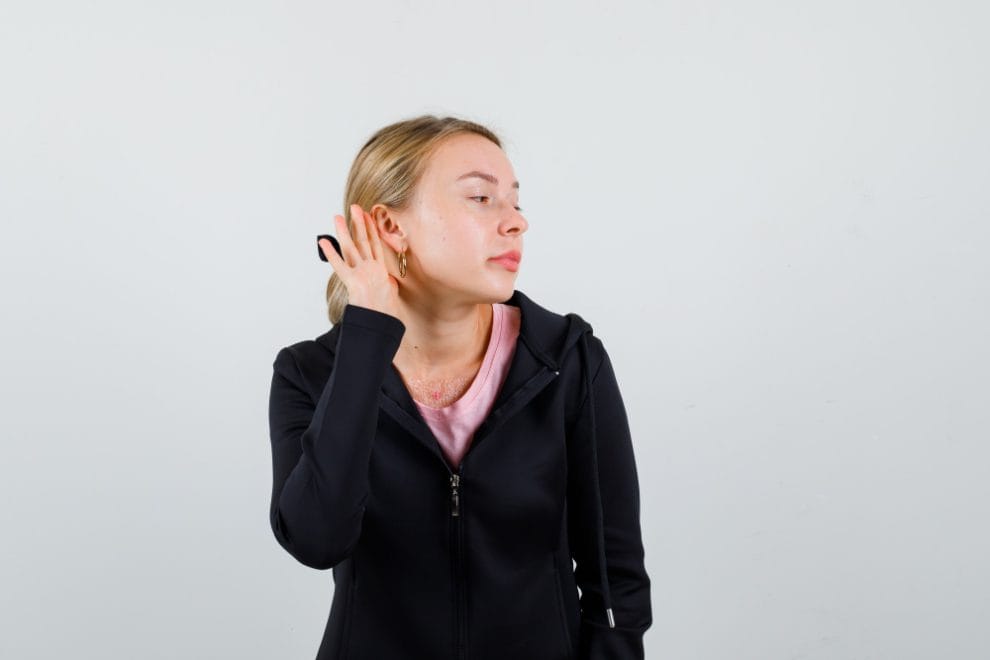The Role of Antioxidants in Hearing Protection

Hearing health plays a vital role in overall well-being, yet it is often neglected. Many factors, including aging, noise exposure, and poor diet, can contribute to hearing loss. However, antioxidants have emerged as powerful allies in protecting and preserving hearing. These nutrients help combat oxidative stress, a major contributor to auditory damage. Let’s explore how antioxidants support hearing health and which foods can help protect your ears.
- Understanding Oxidative Stress and Hearing Loss
- Key Antioxidants for Hearing Health
- Foods Rich in Antioxidants for Hearing Protection
- Benefits of Antioxidants in Noise-Induced Hearing Loss
- Lifestyle Tips to Enhance Hearing Protection
- The Future of Antioxidants in Hearing Health
- Conclusion: Prioritize Antioxidants for Better Hearing
Understanding Oxidative Stress and Hearing Loss
Oxidative stress occurs when there is an imbalance between free radicals and antioxidants in the body. Free radicals are unstable molecules that can damage cells, including those in the inner ear. This damage can impair auditory function and lead to hearing loss over time.
In the cochlea, tiny hair cells are responsible for converting sound waves into electrical signals for the brain. These cells are highly sensitive to oxidative damage, particularly when exposed to loud noises or aging-related stress. By neutralizing free radicals, antioxidants protect these delicate cells and help prevent long-term auditory damage.
Key Antioxidants for Hearing Health
Several antioxidants have been shown to benefit hearing health by reducing oxidative stress and supporting auditory function. Here are some of the most effective ones:
- Vitamin C
Vitamin C is a powerful antioxidant that protects against cell damage in the inner ear. It also supports collagen production, which helps maintain the structural integrity of the auditory system.- Sources: Oranges, strawberries, bell peppers, broccoli.
- Vitamin E
This antioxidant helps protect the cochlea from noise-induced damage and improves blood flow to the ears.- Sources: Almonds, sunflower seeds, spinach, avocados.
- Beta-Carotene
Beta-carotene is converted into vitamin A in the body, supporting healthy hearing by protecting the sensory cells in the ear.- Sources: Carrots, sweet potatoes, cantaloupe, kale.
- Magnesium
While not an antioxidant itself, magnesium works synergistically with antioxidants to protect against noise-induced hearing loss by reducing inflammation and maintaining healthy blood flow.- Sources: Bananas, spinach, dark chocolate, quinoa.
- Coenzyme Q10 (CoQ10)
CoQ10 supports mitochondrial function and protects hair cells in the inner ear from oxidative damage. It is particularly beneficial for individuals experiencing age-related hearing loss.- Sources: Fatty fish, organ meats, nuts, and seeds.
Foods Rich in Antioxidants for Hearing Protection
Incorporating antioxidant-rich foods into your diet can significantly improve your hearing health. Here’s a list of foods to consider:
- Fruits: Berries, oranges, and grapes are packed with antioxidants like vitamin C and resveratrol, which combat oxidative stress.
- Vegetables: Leafy greens, carrots, and broccoli provide essential vitamins and minerals for ear health.
- Nuts and Seeds: Almonds, walnuts, and sunflower seeds are rich in vitamin E and healthy fats.
- Whole Grains: Oats, quinoa, and brown rice supply magnesium and other nutrients essential for auditory function.
Benefits of Antioxidants in Noise-Induced Hearing Loss
Noise-induced hearing loss (NIHL) is a common issue caused by prolonged exposure to loud sounds. Antioxidants play a crucial role in preventing and mitigating NIHL by reducing the inflammation and oxidative damage that occur after noise exposure.
Studies show that antioxidants like vitamins C and E, along with magnesium, can reduce the risk of hearing loss in individuals exposed to high-decibel environments. For example, workers in noisy industries or concert-goers can benefit from an antioxidant-rich diet to protect their ears.
Lifestyle Tips to Enhance Hearing Protection
While antioxidants are vital, combining them with healthy lifestyle practices can further safeguard your hearing:
- Limit Noise Exposure
- Wear earplugs in loud environments.
- Keep headphone volumes below 60% and take breaks during prolonged listening.
- Stay Physically Active
Exercise improves circulation, ensuring the ears receive adequate oxygen and nutrients. - Manage Stress
Chronic stress can exacerbate hearing issues. Practice relaxation techniques like yoga or meditation to promote overall ear health. - Avoid Smoking
Smoking increases free radical production and reduces antioxidant levels, negatively affecting hearing.
The Future of Antioxidants in Hearing Health
Research into the role of antioxidants in hearing protection is ongoing, with promising results. Scientists are exploring new antioxidant compounds that could further enhance auditory health and even reverse some forms of hearing loss. Supplements containing a blend of antioxidants tailored for hearing health are becoming increasingly popular, offering an accessible way to support your ears.
Conclusion: Prioritize Antioxidants for Better Hearing
Antioxidants are a powerful tool in preserving hearing health and protecting against damage caused by oxidative stress. By incorporating antioxidant-rich foods into your diet and adopting a healthy lifestyle, you can reduce your risk of hearing loss and maintain optimal auditory function. Take proactive steps today to safeguard your hearing for years to come.
Unlock the Secret to Healthier Hearing Today!
Take the first step toward better ear health and say goodbye to constant ringing and discomfort. Quietum Plus offers a natural and effective solution tailored for your auditory wellness. Don’t wait—click the button below and reclaim your peace of mind with our risk-free 60-day guarantee!
Leave a Reply



You may also like